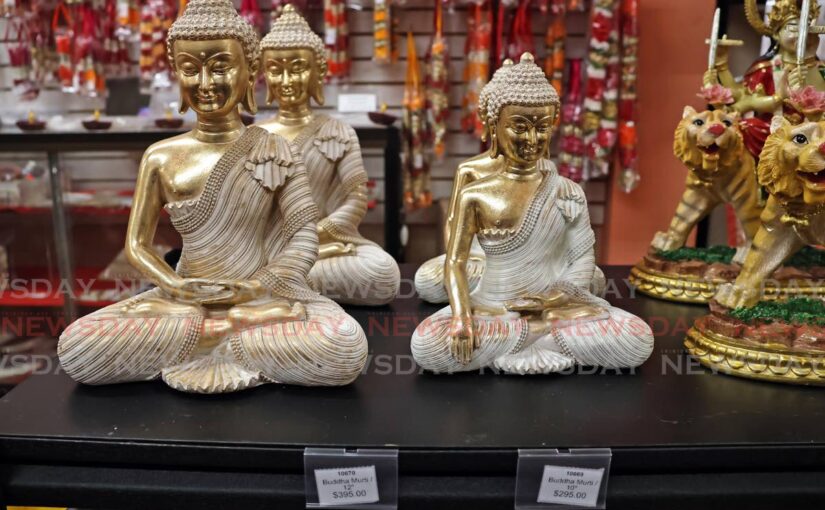For my birthday last month, I asked for markers. Since then, I’ve spent several hours in my soft front-room chair, copying out verses from the...
Vous n'êtes pas connecté
- English
- Français
- عربي
- Español
- Deutsch
- Português
- русский язык
- Català
- Italiano
- Nederlands, Vlaams
- Norsk
- فارسی
- বাংলা
- اردو
- Azərbaycan dili
- Bahasa Indonesia
- Հայերեն
- Ελληνικά
- Bosanski jezik
- українська мова
- Íslenska
- Türkmen, Түркмен
- Türkçe
- Shqip
- Eesti keel
- magyar
- Қазақ тілі
- Kalaallisut ; kalaallit oqaasii
- Lietuvių kalba
- Latviešu valoda
- македонски јазик
- Монгол
- Bahasa Melayu ; بهاس ملايو
- ဗမာစာ
- Slovenščina
- тоҷикӣ ; toğikī ; تاجیکی
- ไทย
- O'zbek ; Ўзбек ; أۇزبېك
- Tiếng Việt
- ភាសាខ្មែរ
- རྫོང་ཁ
- Soomaaliga ; af Soomaali
 Maroc - CANADIANMENNONITE.ORG - A La Une - 01/Nov 04:00
Maroc - CANADIANMENNONITE.ORG - A La Une - 01/Nov 04:00
In prayer with old monks
I’m taking a group from our church on a spiritual retreat this weekend. I’ve gone on many personal retreats to the Abbey of the Genesee, a Trappist monastery in New York, but this is my first time leading a group retreat there. I decided to do this for several reasons. First, the monastery likely won’t be around much longer. During my visit in 2023, I was shocked at how much the monastery had changed. The sense of community the monks fostered among strangers is gone: since the pandemic, they no longer house guests in the same buildings. The biggest change, however, was the decreased number of monks and the diminished vibrancy of those who remained. An Abbey staff member explained that most of the elderly monks were either passing away or too feeble to regularly attend services. Because few men are choosing monasticism, the Abbey will probably close in a few years. This made me reflect on the fleeting existence of everything, including good and godly things. Nothing lasts forever. Accepting this brings sorrow, but it also makes me better appreciate the people and things in my life. We don’t know how long we will be able to enjoy our family, friendships, health, churches or current forms of democracy. As Ecclesiastes teaches, there’s a time and season to resist the decline and death of things, groups and institutions we value; and there’s a time to accept their inevitable end, while appreciating the time they have left. Although Genesee isn’t what it used to be, and the people I’m bringing along probably won’t experience the vibrancy I’ve experienced in the past, there likely are only a few years left to experience Genesee at all. If others can experience a fraction of the healing I’ve experienced there, it will be worth it. The second reason for this retreat is for people from my church to experience the monastic rhythm at Genesee. In a world where silence and prayer are in decline— according to Pew Research, 73 percent of white Christians in America rarely or never pray—it’s powerful and counter-cultural to spend time with monks who have dedicated their entire lives to prayer. Coincidentally, while I was writing this, someone sent me lyrics to a new Coldplay song titled, “We Pray.” A new survey reveals more Christians are interested in prayer than in church. There is clearly still a desire for connection with God. So why are we praying less? Often, the reason many Christians don’t pray is that they don’t know how, or they’ve become disillusioned with the ways they’ve been taught to pray. For some, meditation has replaced prayer. I believe in the benefits of meditation, but it’s not a substitute for prayer. As Martin Luther King Jr. said, “To be a Christian without prayer is no more possible than to be alive without breathing.” Prayer is essential, but knowing how to pray is complicated. This is where monks can help. I once asked a monk at Genesee how to pray. He said, “Prayer is entering the space within you where Christ already resides and is waiting to commune with you.” This resonated with me. I’ve shared the monk’s words with others, but I usually get blank stares in response. One friend, a professor, replied, “Sure, whatever that means.” A monk from the 17th century, Brother Lawrence, wrote, “There is not in the world a kind of life more sweet and delightful than that of a continual conversation with God.” I wish everyone could experience this, though I’m not sure every personality type is capable of this level of spiritual sensitivity, openness, connection and intimacy with the divine. I will say this: prayer is rooted in desire. If you desire connection and communion with God, make it a priority and intentionally fan the flame of this desire—something will happen. This is what I’m hoping for on our retreat—that the monks’ devotion to communion with God will be contagious and will enliven our faith. That we will encounter God’s presence anew. This is what I hope all of us experience in our prayer lives. Troy Watson is a pastor at Avon Church in Stratford, Ontario. Photo: Henri Molenhuis Share this page:
Articles similaires
'Really disgusting': GOP slammed by order of nuns accused of election fraud
An order of nuns is fighting back after a GOP operative accused its monastery of being at the center of a scheme to defraud the election in...
As our U.S. neighbours prepare to vote
The first time I flew overseas, I remember wondering whether I had flown beyond the reach of God. We had, quite literally, risen on the wings of the...
Unity makes church
Compromise feels like a curse word these days. Opinions are deeply entrenched. Distinctions between “us” and “them” are sharply defined....
WHEN EVELYN JOSHUA ELEVATES "THE POOREST OF THE POOR" IN ARGENTINA
BALASTRO II, FONTANA in Resistencia CHACO Province of Argentina is a lesson in the tragedy of existence. The high level of poverty is terrifying!...
Passion Java Foresees Paul Mwazha’s Departure: A Urgent Call for Prayer
Passion Java Foresees Paul Mwazha’s Departure: A Urgent Call for Prayer and Unity Amidst Leadership Challenges in Church. As the year draws to a...
Relatives of shot Caroni policewoman: Pray for Quianna
THE family of the female police officer who was shot outside her Caroni home on October 22, hours after returning from performing with the TT Police...
Readers Write: November 2024
Good people hurt by MCC I am writing this letter in support of the individuals who wrote and signed the open letter to Mennonite Central Committee...
After the bubble shatters
I felt delight in growing up in the church. Not only did I attend Sunday school and children’s church, but I went to Christian elementary and...
Family legacies at the heart of puja stores
BAVINA SOOKDEO THE puja store industry has blossomed into a niche yet essential business sector that caters to a range of religious and cultural...
Les derniers communiqués
-
Four Seasons to Expand Saudi Arabian Portfolio Alongside Dar Al Omran Company with New Hotel in Madinah
Four Seasons Hotels and Resorts - 07/05/2024
-
Four Seasons Yachts Unveils Inaugural Itineraries to the Caribbean and Mediterranean and a First Look at its 95 Spectacular Suites
Four Seasons Hotels and Resorts - 27/03/2024
-
Visual 01Elevating Excellence: Four Seasons Embarks on the Next Stage of Strategic Global Growth
Four Seasons Hotels and Resorts - 22/01/2024









